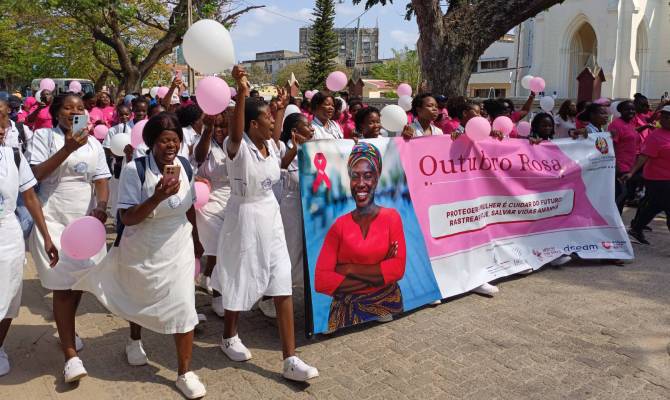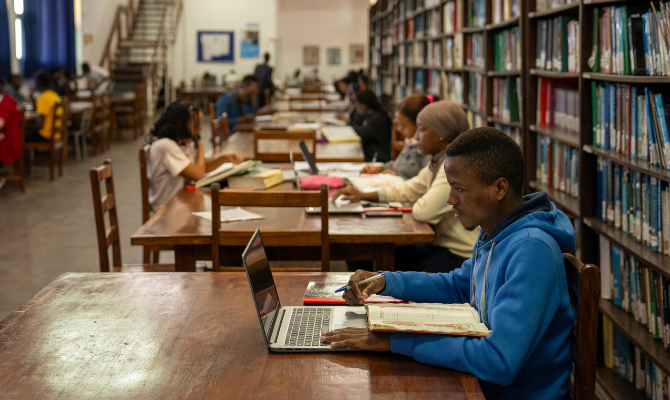All over the world, October is synonymous with breast cancer awareness. During “Pink October”, many initiatives come to life with the aim of creating awareness on the importance of prevention, as well as to raise funds for research against this disease. According to the World Health Organisation, in 2020, breast cancer became the most commonly diagnosed type of cancer in the world, with more than 2.26 million new cases and almost 685,000 deaths worldwide. Today, breast cancer is the most common cause of death by cancer in women and the fifth most common cause of death by cancer in general.
These statistics also affect the countries where Doctors with Africa Cuamm operates, where the situation is further aggravated by the scarcity of resources and knowledge. Here, celebrating Pink October and raising awareness becomes even more important. This is precisely why, last Sunday, in Beira, Mozambique, we organised a march, in collaboration with the Direcção Provincial de Saúde de Sofala and the Outubro Rosa Movement. Launched as part of the “Promoting Sexual and Reproductive Health in Communities” project, funded by UNFPA and KOICA, the march was attended by around 200 people. A pink stream that coloured the streets, from the Beira Central Hospital to Praça da Independência, with the aim of creating awareness about a disease that affects a large number of women. According to the Mozambique Ministry of Health, 26,000 new cases of breast cancer were recorded in 2022 alone, and this number is expected to rise to 52,000 by 2040. Prevention, therefore, remains the most effective tool to try to reverse this trend. For this reason, at the arrival of the march, health workers and Cuamm community agents welcomed people at stands set up to offer free examinations and tests, inform on the importance of screening and educate on the warning signs. Moreover, since a healthy lifestyle is always the first and best form of prevention, a stand was dedicated to nutritional education and the importance of physical activity, also promoted in an aerobics session. In addition, to further involve the public, a theatrical play staged by a local group that, with laughter and warnings, highlighted the main beliefs and fears about check-ups, thus disseminating important public health messages.
Finally, on the same weekend, 3 more marches were organised in the districts of Dondo, Buzi and Nhamatanda, where the “Promoting Sexual and Reproductive Health in Communities” project works in rural areas to increase knowledge about sexual and reproductive health.





